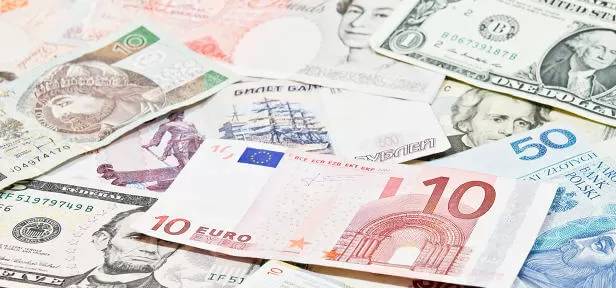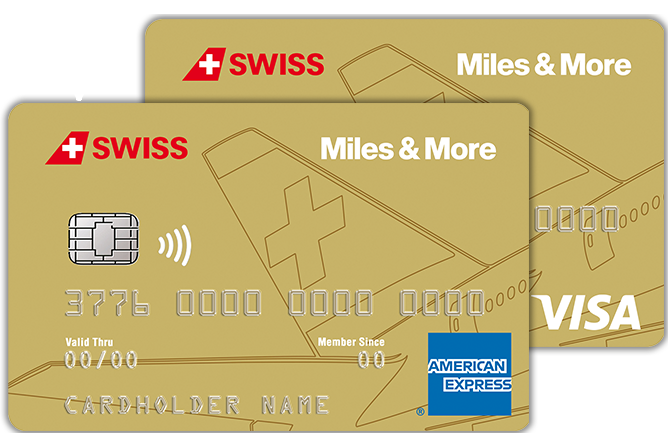Not carrying at least some cash with you is a serious handicap when traveling in most countries. Because of this fact, Swiss vacationers and business travelers are regularly faced with the question of how to buy foreign currency at the lowest possible cost.
In practice there are two main options for exchanging Swiss francs for foreign currency: Buying foreign currency in Switzerland, or purchasing it on location at your travel destination.
Purchasing foreign currency in Switzerland
Euros are readily available at many Swiss bank counters and even at ATMs. Getting ahold of other widely used currencies, such as British pounds, can be more difficult. Less widely circulated currencies are only immediately available at a small fraction of bank branch offices.
Hard to come by currencies must usually be ordered several days in advance. As a bank customer, you can collect the currency you ordered directly at your bank. This service is normally not available to non-customers.
Larger branch offices, like the Zurich airport and Zurich Bahnhofstrasse branches of UBS or Credit Suisse, hold a large portfolio of over 90 currencies on hand. Even most "exotic" currencies are often available at these branches.
Even if you are not a customer, you can exchange money at these locations, and as a rule, you enjoy the same rates as bank customers. However, as a non-customer you will pay a commission of 5 to 10 francs for the service. Consider phoning the branch in advance to ensure that the currency you need is available and to inquire as to the commission that you can expect to pay for the exchange.
Foreign currency by mail
PostFinance is another good bet for foreign currency, with over 80 currencies available. The only catch is that, with the exception of euros, you can’t purchase foreign currency directly at the counter. As a PostFinance customer, you can have foreign currency (minimum 100 francs value) delivered to your home for a fee of 5 francs.
You will have to make your order on a weekday before 1:00 PM. PostFinance uses the exchange rates provided by World Money Direct. This delivery service is operated by Swiss Bankers, a joint venture of cantonal banks, regional banks, Raiffeisen and Credit Suisse.
Swiss Bankers also manages foreign currency deliveries for Migros Bank, the cantonal banks, regional banks, UBS, the SBB/CFF and a number of other institutions. Currency purchases can only be made through a third-party financial service provider, and not directly from Swiss Bankers. Some banks use the exact Swiss Bankers rates for currency exchanges, while other banks add a markup.
SBB forex bureaus: Keep an eye on rates
Many Swiss are familiar with the forex services provided by the Swiss federal railway (SBB/CFF). Over 90 currencies are available at most major train stations. A 4-franc fee applies to each exchange, but this is waived for SBB GA Travelcard holders. If a currency isn’t immediately available, it can be delivered to you by post for a 3-franc fee.
A downside of buying foreign currency from the SBB is that the exchange rates offered for some less-major currencies are not among the most favorable. In the most extreme cases, you can get 20 percent less foreign currency at the SBB rates than at the most favorable bank!
Comparing foreign currency exchange rates
Most banks offer similar exchange rates for major currencies like the euro, British pound or US dollar. But when purchasing other currencies, you need to pay close attention to exchange rates. This applies to all currencies aside from euros, US dollars and British pounds.
Inquiring into going rates online or by phone before heading down to the bank to buy foreign currency is always a good idea because rates change regularly. When purchasing less-available foreign currencies in particular, the differences in rates offered by various banks can be considerable. Typically, most branch offices of the same bank will offer the same rates. But there are exceptions. For example, branches that specialize in last-minute currency exchanges (like airport branch offices) may use less-favorable exchange rates.
Withdraw less-common currencies abroad
As a rule, if you want to buy currencies other than British pounds, US dollars and euros, you will often get a better rate outside of Switzerland. Swiss banks typically use a less-favorable "banknote rate" for cash exchanges and a more-favorable "forex rate" for ATM withdrawals outside of Switzerland.
It’s important, however, that you go about exchanging money the right way when buying currency abroad. Completely avoid getting cash advances using credit cards if possible. Doing so will cost you dearly in the way of cash advance and foreign exchange fees.
Using a debit card, such as a Maestro card from MasterCard, or a V-Pay card from Visa, is often the best-value option.
As a PostFinance Private Account Plus holder, you can use your PostFinance Card to make withdrawals outside of Switzerland without paying a withdrawal fee. You will still pay a foreign currency exchange fee and third-party fees (ATM operator fees, for example).
Important: Try to use ATMs that do not charge high usage fees when withdrawing money abroad.
Inform yourself about trustworthy banks at your travel destination via the Internet before your trip. As a rule, bank ATMs have lower fees than ATMs operated by forex bureaus like Travelex. Many ATMs will inform you about the presence of additional fees before you make the transaction, but they won’t always provide details about the exact amount you will pay. Banks and other ATM operators may also use very unfavorable exchange rates, which adds an extra cost on top of fees.
Depending on the currency and country in question, fees, rates and withdrawal limits can vary in a big way. It’s always smart to do your own research. Learning from other travelers’ experience through online travel forums can also help you understand your options.
Example: If ATMs that match your debit card’s payment network (Plus, Maestro) are not widely available at your destination, you may want to bring some easy to exchange currency like US dollars or euros with you. You will be able to exchange this for local currency in most countries, and won’t end up stuck if your card doesn’t work or you can’t find an ATM.
Don’t change more than you will spend
A couple of foreign bills or coins make a great souvenir, but avoid bringing home large amounts of foreign currency which you will then have to change back into Swiss francs at a huge loss. Try not to exchange or withdraw more than you need. Unless you plan to return to your destination, using up your foreign currency can be preferable to exchanging it back into francs at a loss.
More information:
Credit card comparison
Credit cards: how to handle mistakes on your statement
Travel and credit cards: tips

 Deal of the Day
Deal of the Day 










